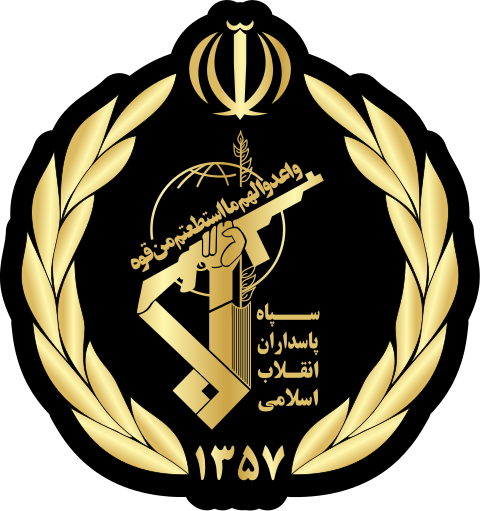Dr. Matthew Levitt is the Fromer-Wexler Fellow and Director for the Reinhard program on Counterterrorism and Intelligence at The Washington Institute for Near East Policy. He previously served as the Treasury Department’s Deputy Assistant Secretary for Intelligence and Analysis.
On April 8, President Donald Trump announced the addition of the Islamic Revolutionary Guard Corp (IRGC) to the State Department’s Foreign Terrorist Organization (FTO) list. The designation, effective April 15, represents the latest escalation of the administration’s “maximum pressure” campaign targeting Iran’s malign activities, but it is an action heavy on messaging with few practical advantages. The IRGC was already designated under U.S. Treasury counter-proliferation authorities (EO 13382) in 2007, and then again for human rights abuses – along with the Basij Resistance Force and the Law Enforcement Forces—under EO 13553 in 2011. As the State Department’s fact sheet about the FTO designation notes, the IRGC’s Qods Force was designated under counterterrorism authorities (EO 13224) as a Specially Designated Global Terrorist in 2007, and the IRGC itself was designated under the EO 13224 counterterrorism authority in 2017 as well.
In other words, the U.S. Treasury Department already formally designated the IRGC as a terrorist group, and today’s action just does so again under the State Department’s own list under another authority—Section 219 of the Immigration and Nationality Act.
The only new authorities a State Department FTO designation adds beyond those already on the books are:
(1) The FTO designation imposes immigration restrictions on members of the organization simply by virtue of their membership, so anyone ever affiliated with the IRGC can now be excluded from entering the United States, and
(2) The FTO designation triggers a criminal prohibition on knowingly providing material support or resources to the designated organization.

While the sanctions implications of doing business with the IRGC should have kicked in with those earlier designations, the FTO designation does expose businesspersons to criminal charges of providing material support to terrorists under U.S. law (Anti-Terrorism and Effective Death Penalty Act, AEDPA, 18 USC 2339B) if they knowingly do business with the IRGC. Since the IRGC’s role in the Iranian economy is notoriously opaque, proving a standard of “knowingly providing material support” could prove difficult.
More to the point, such persons were already exposed to criminal liability even before the FTO designation. Anyone knowingly “acting for on behalf” of an entity designated under the Treasury authorities—like the IRGC already was—would be exposed to criminal liability under the International Emergency Economic Powers Act (IEEPA, 50 USC 1701 at seq). The FTO designation now adds exposure to the crime of providing material support to a terrorist group as well, but the effect is the same. The existing exposure to criminal liability under IEEPA can only attach if there is a sufficient territorial nexus to the United States. Criminal liability for material support under the FTO designation includes a measure of extraterritoriality.
Meanwhile, the value of the FTO designation as a form of maximum pressure must be balanced against the increased risk on several fronts.
First is the risk to U.S. military and diplomatic forces. It is true that Iran already aggressively carries out surveillance of potential targets, has plotted assassinations of Iranian dissidents in Europe, and more. But designating the IRGC in its entirety (beyond just the Qods Force) as an FTO increases the odds that the group lashes out with terrorist or military attacks.
Second, this marks the first time an agency of a foreign government has been designated as an FTO and could prompt other governments to follow suit and apply their own reciprocal designations to U.S. or other allied government agencies.
Third, the designation is sure to put close American allies in a difficult position and could complicate collective action targeting Iran that would be more effective than an FTO designation, such as joint U.S.-European action targeting Iran’s terrorist and ballistic missile activities. The FTO designation also could prove destabilizing for Iraq, which purchases energy from Iran by virtue of necessity, thereby undermining a key U.S. foreign policy objective in the region.
Finally, the FTO designation of the IRGC risks further undermining U.S. unilateral sanctions authorities. To the extent that U.S. unilateral sanctions are seen as being politicized actions rather than technocratic measures, then these authorities could be undermined in the eyes of countries around the world—as well as the private sector financial and business communities.
Announcing the FTO designation, the President stated, “This action will significantly expand the scope and scale of our maximum pressure on the Iranian regime. It makes crystal clear the risks of conducting business with, or providing support to, the IRGC. If you are doing business with the IRGC, you will be bankrolling terrorism.” In fact, those risks were already crystal clear. When the Treasury Department designated the IRGC under counterterrorism authorities in 2017, Treasury Secretary Steven T. Mnuchin said: “We urge the private sector to recognize that the IRGC permeates much of the Iranian economy, and those who transact with IRGC-controlled companies do so at great risk.” The message is not a new one, and the designation does not add much additional pressure.
Part 1: Trump, Pompeo on IRGC as “Terrorists”
Part 2: Fact Sheets on IRGC, Qods Force
Part 4: Experts on IRGC Designation
Part 5: How Might Tehran Respond to IRGC Designation?
Part 6: Iranian Officials React to IRGC Designation
